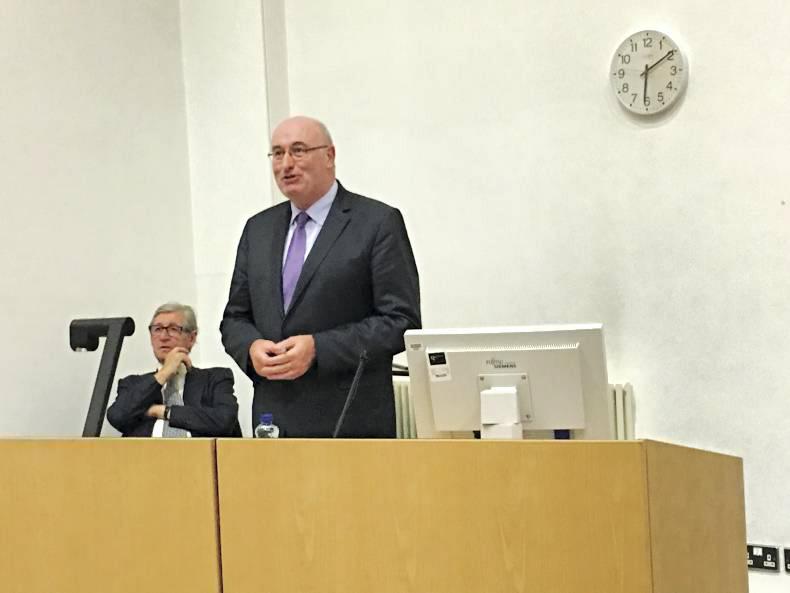Commissioner Phil Hogan delivered the annual Gibson lecture in Queen’s University Belfast on Monday evening.
He began by paying tribute to William Gibson for his contribution to agriculture and the university, and of course wished everyone a “happy Europe” day, even though it was news to many in the audience.
He also said normally on such occasions the Common Agriculture Policy (CAP) would be the focus of his speech but six weeks away from the referendum on continued UK membership of the EU, it was Brexit and its consequences that was foremost in his mind.
He opened the subject by saying that he wasn’t going to tell people how to vote but proceeded over the next half hour or so to make the case for how the EU benefited agriculture and the agri food industry in Northern Ireland.
EU to magnify Northern Ireland’s influence
Recent trade visits and benefits to member states were mentioned, as was TTIP, with a reassurance that high-quality EU standards wouldn’t be compromised in a trade deal that would create opportunities. His bottom line was that the EU wouldn’t moderate or tame Northern Ireland’s influence. Rather, it would magnify it.
Commissioner Hogan gave the example of EU pigmeat to China, saying the EU would export 12,000t this year without having to deal with high tariffs or burdensome regulatory frameworks.
Time and again Hogan reminded his audience that with him they know where they stand with CAP until 2020.
However, the Commissioner was most frank when speaking about the CAP and Northern Ireland. Mentioning that agriculture hadn’t been a major part of the debate in the UK, but it was critical to Northern Ireland, he set out the value of CAP over the past decade, which was £2.5bn, or, in the context of farm incomes, £8.70 out of every £10 earned.
An “untested hypothesis”
The commissioner recognised that the UK could develop its own agricultural policy but said it was an “untested hypothesis”. He went on to talk about trade between the UK and Ireland, worth almost £4bn each way, and then explored the possibilities of how Brexit might affect cross-border trade on the island of Ireland. He highlighted issues like a dual agricultural policy. The peace process also got a mention, and the EU contribution of £1.3bn since 1995 was noted, as was the current programme of £270m.
He wrapped up the by saying that the CAP was in place until 2020 but if there was a Brexit, agriculture spending would have to compete with other government departments in the annual British Treasury review.
He then spent as long taking questions from the floor and debated with a wide range of opinions. However, given the agricultural and research element of the audience, there was a sense of fear of the unknown being trumped by the status quo. Time and again, Hogan reminded his audience that with him they know where they stood with CAP until 2020.
The commissioner may at the outset have said he wasn’t going to tell the electorate how to vote in the referendum on 23 June, but by the end nobody in the audience was in any doubt as to what he thought.






 This is a subscriber-only article
This is a subscriber-only article










SHARING OPTIONS: